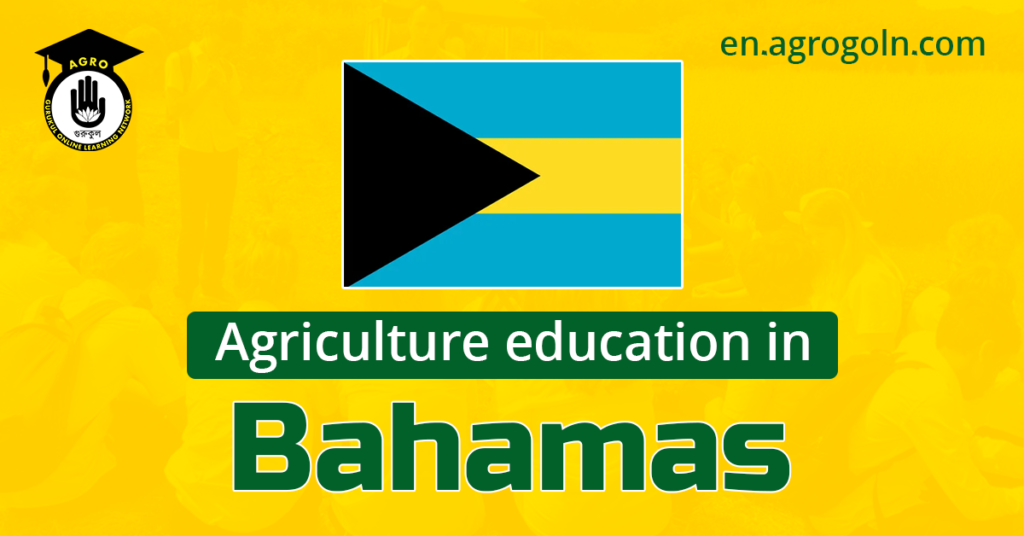Agricultural Education in The Bahamas.The field of agricultural education, including food, fiber, and natural resources, has seen an increasing wave of interest and recognition in recent times, and The Bahamas is no exception. It’s an archipelagic country comprising more than 700 islands, cays, and islets, and although often recognized for its sun-drenched beaches, stunning coral reefs, and thriving tourism industry, it is also the home to a rich, albeit often underemphasized, agricultural sector. The potential for growth within this sector has brought the focus on agricultural education to the forefront of the national agenda.
Agricultural Education in The Bahamas
Background
Agriculture in The Bahamas has traditionally been a smaller sector compared to tourism, finance, and other industries. Nevertheless, it has the potential to bolster the economy, provide food security, and promote sustainability. Realizing this potential requires an informed, skilled, and motivated agricultural workforce, which underpins the importance of agricultural education. In recent years, The Bahamas has made significant strides in this regard, recognizing that agricultural education is pivotal in not only driving the sector’s growth but also in diversifying its heavily tourism-reliant economy.
Agricultural Education in Schools
Agricultural education in The Bahamas begins at the primary and secondary school level. The curriculum includes theoretical knowledge and practical skills, educating students about crop cultivation, animal husbandry, agricultural science, and the importance of sustainable farming practices. Field trips to local farms and participation in gardening projects further enrich students’ understanding of agricultural practices.
In schools, students learn about the importance of agriculture in sustaining and enriching our lives, the practical aspects of gardening and farming, and the broader environmental implications of agricultural practices. By introducing agriculture at this foundational level, the goal is to spark interest among youth, potentially inspiring them to consider agriculture as a viable and valuable career path.
Tertiary Agricultural Education
For tertiary education, The Bahamas Agriculture and Marine Science Institute (BAMSI), located on Andros Island, is a notable institution. BAMSI provides comprehensive training programs for students, offering associate degrees in various fields, including agriculture, marine resources, and environmental science. The programs blend academic theory with hands-on practical experience, equipping students with the skills needed to boost agricultural output and promote sustainable farming practices.
Furthermore, The College of The Bahamas, recently rechristened as The University of The Bahamas, also offers degree programs related to agriculture. These programs highlight the importance of agricultural science and its role in society, emphasizing areas such as crop science, animal science, agricultural biotechnology, and food safety.
Vocational Training and Extension Services
Aside from formal education, vocational training and extension services also play a crucial role in promoting agricultural education. These include workshops, seminars, and on-the-job training that focus on enhancing farmers’ skills and knowledge. The Ministry of Agriculture and Marine Resources, along with other organizations, often hold training sessions on various aspects of agriculture, including crop cultivation, livestock rearing, and modern farming techniques.
Extension services play a significant role in educating farmers about the latest farming techniques, technology, pest control methods, and sustainable practices. They serve as an essential link between research institutions and farmers, ensuring that new developments and findings in agricultural science are effectively communicated and applied at the grassroots level.
The Role of Research
Research is a cornerstone of agricultural education, driving innovation, and sustainability in farming practices. Institutions such as BAMSI and The University of The Bahamas actively engage in agricultural research, exploring areas like soil fertility, pest control, crop yield, and the development of drought-resistant crop varieties. The findings from such research can lead to advancements that increase productivity, improve sustainability, and enhance the resilience of The Bahamas’ agricultural sector against threats such as climate change.
Agricultural Education and Sustainability
A critical aspect of agricultural education in The Bahamas is the emphasis on sustainable farming practices. As an island nation, The Bahamas is particularly vulnerable to the impacts of climate change. Consequently, agricultural education incorporates lessons on climate-smart agriculture, including the use of water-efficient irrigation systems, organic farming practices, crop rotation, and other methods that contribute to the health of the land and productivity of the farming sector.
Challenges and Future Directions
Despite significant strides in agricultural education, The Bahamas faces several challenges. These include changing the perception of agriculture as an antiquated sector, promoting it instead as an exciting field ripe with innovation and opportunity. There is also a need to further integrate technology into agricultural education and practice, aligning the sector with the digital age.
Looking ahead, the future of agricultural education in The Bahamas appears promising. The increasing emphasis on agriculture in schools, the expanding role of institutions like BAMSI, and the growing recognition of the need for sustainable farming practices are positive indicators of progress. With continued investment in agricultural education, The Bahamas is well-positioned to cultivate a new generation of agricultural professionals equipped with the knowledge, skills, and passion to drive the sector forward.
In conclusion, agricultural education in The Bahamas, spanning from primary schools to research institutions, plays a pivotal role in promoting sustainable agriculture, food security, and economic diversification. It is the backbone of the nation’s efforts to realize the full potential of its agricultural sector. Despite challenges, the growing emphasis on this critical education signals a promising future, sowing the seeds for a robust, resilient, and sustainable agricultural sector in The Bahamas.
See more:

